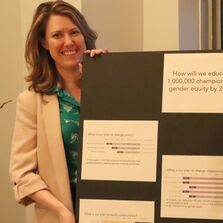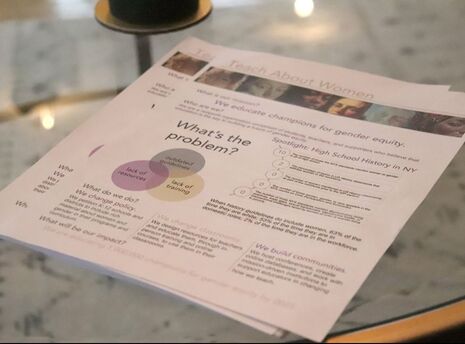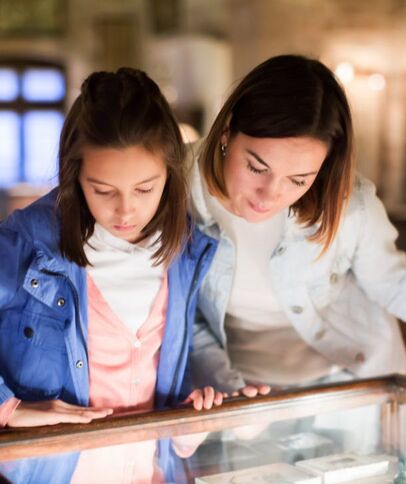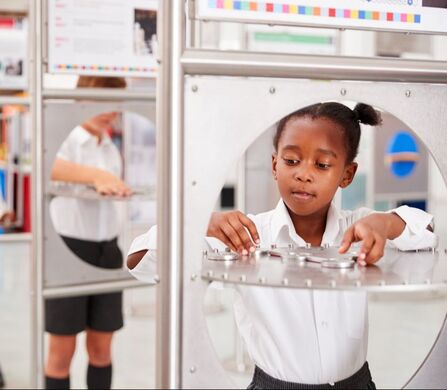We help K-12 educators integrate the latest research on women and gender into their teaching.
We specialize in providing
WorkshopsWe provide workshops for K-12 students, faculty, parents, and alums. We are proud to be able to adapt content for the various groups that make up your school community. Presentations can range from content about women's history to the importance of gender-inclusive practices and ways to combat unconscious bias.
Presentations and Keynote addressesWe provide presentations and keynote addresses for adults and professional communities. We specialize in curating accessible, engaging experiences on the history of women, gender and power, women's contributions, and how we can all help build an equitable future. We can adapt these for any kind of professional setting.
Book clubs and Coffee TalksWe design bookclubs and informal coffee talks deepen your community's understanding of diverse women's experiences. These are especially useful for engaging parents in equity work and widening the impact of diversity and inclusion initiatives beyond your community's core group of dedicated DNI professionals.
Turnkey classroom resourcesWe design curriculum, lesson plans, and activities about the history of women, gender and power. K-12 educators can use these resources with their students right away. Depending on your faculty's preferences, we make these available in both hardcopy and online.
Professional DevelopmentRanging from instructional coaching to curriculum design, we pride ourselves on building strong relationships with school communities to ensure that every educator feels supported in adopting new practices and content to ensure they present a complete story of the human experience and nurture the potential of every student.
Department-, School- and District-wide AuditsWe work with school leadership to conduct comprehensive audits of departmental, school, or district data, curriculum, and instruction to foster school improvement in terms of gender equity. Audits highlight strengths and areas of improvement specifically in relation to student data and experience; faculty knowledge of gender equity and equitable teaching strategies; and community-wide norms around gender and women's roles. What is an audit without an action plan? We always include a plan for improvement and make ourselves available to help community's implement our feedback.
|
What's the problem?Even as individual women make major headway professionally, the gender leadership gap persists across business, politics, and technology. 25% of business leaders (“C-Suite” executives) are women. 27% of US Congressional seats are held by women. 16% of engineers are women. We believe the problem begins in schools. A typical high school history curriculum in the US mentions fewer than six women by name in all four years. Globally, 64% of girls turn away from S.T.E.M. before the age of 15.
|
Why do we focus on K-12 schools?Primary and secondary school, when children are ages 6 to 18, are vital periods for building self-esteem, empathy, and resilience. Girls and boys alike learn the written and unwritten rules of influence and power. The messages are clear. In history classes, students learn about men in leadership and men in government. Hardly a woman is mentioned. Meanwhile, girls are being pushed towards self-selecting out of science and math. Teach About Women tackles these problems head-on by providing teachers with training and resources to integrate women into curriculum across subjects and make their female students feel like assets in the classroom, especially in math and science.
|
Why does teaching about women matter so much?
Understanding how historical developments affect the ways women and men negotiate power is vital to being an engaged citizen. Beginning with the origins of agriculture and ending with current debates around women’s rights and workplace equity, Teach About Women’s humanities curriculum puts women and gender relations at the center of inquiry. We ensure that girls and boys alike can know how women have helped build the world we have today. The challenges we face in building a more equitable world are not new, but to making the same old mistakes, our solutions have to be. We teach content and ask questions that encourage students to imagine a better world.
Why do we have to change how we teach?
|
Current teaching practices can subtly push girls and young women away from pursuing their dreams and taking themselves seriously as scholars. Studies show us that the most notable examples are in math and science classrooms, where girls often self-select out of pursuing advanced tracks before the age of 15. The cause? Subtle biases in the classroom and a lack of community support from family and engaging extracurricular activities. Learn more here. We coach teachers to encourage female students to embrace science and math with confidence, resilience, and joy. Each of our programs is designed with the latest research to make sure that we make as much of an impact as possible.
|
Why do we go beyond the classroom to change schools at an institutional level?
In addition to our work with teachers, we work with schools and educational organizations at an institutional level to ensure that they are building communities that allow everyone to bring their whole self to the classroom and the workplace. Depending on the needs of the institution, that could mean adopting hiring practices that minimize implicit gender biases, establishing diversity and inclusion initiatives, or adjusting school policy to address gender-based discrimination.



